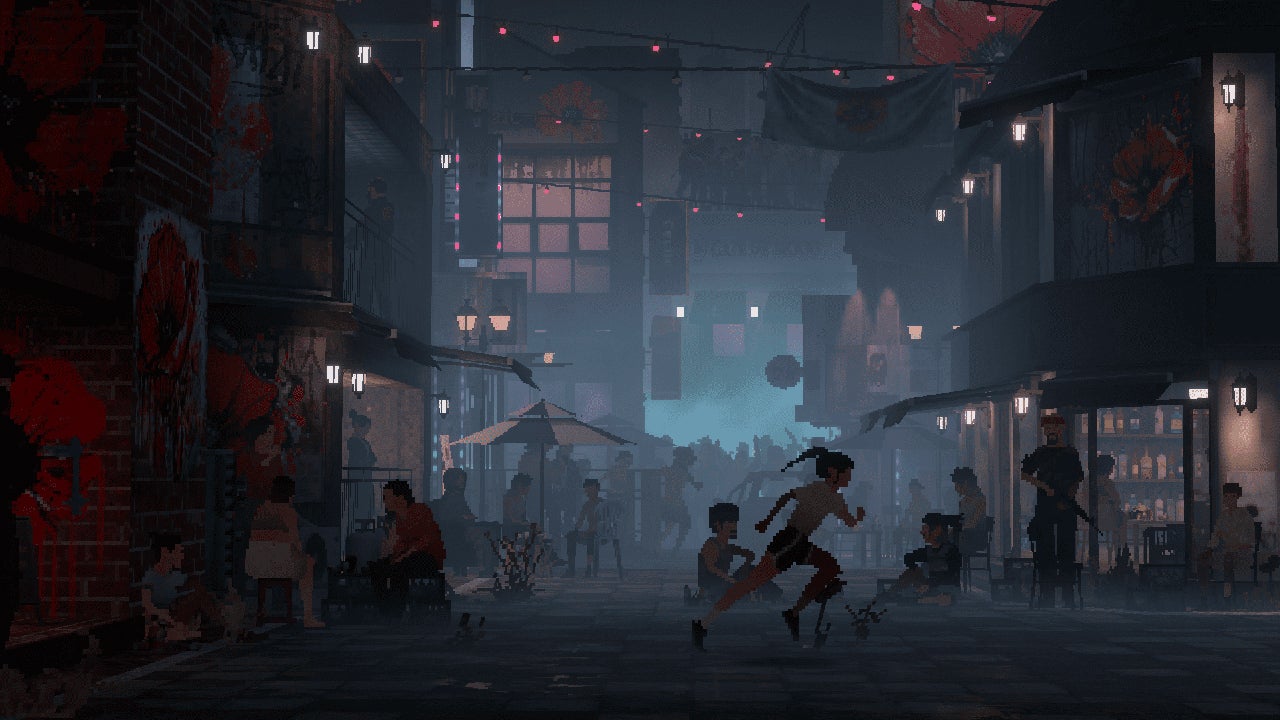Chasing the End doesn’t hide its inspirations for even a second. In the opening scene, Rion, a young woman in Seoul, South Korea, rises from the bed in her apartment building, the TV in the corner showing nothing but static, and a not-so-subtle pixel-art poster of Playdead’s 2016 masterpiece Inside hanging on the wall behind her.
In fact, Inside is the only pristine thing you could possibly be reminded of as you explore Rion’s world. Everything has gone to hell: trash coats the floors of her building, rooms are boarded up, the walls are cracked and crumbling, and as an elderly neighbor stops Rion for a quick chat to plead for help cleaning her place up, it quickly becomes clear that this is not a prosperous world.
In fact, Rion tells her nosy neighbor that she’s given up and that she’s heading to the Han River, where we soon guide her and learn that she intends to jump off the bridge, as so many others have before her – all signified by the shoes left on the side of the railing. She has second thoughts though, fortunately, and is then startled by the sound of gunfire and a crash. She meets a wounded soldier whose quick trigger ensured that he was the only survivor of the scuffle.
As he bleeds out, he entrusts her with a data key; it’s something that, if the soldier is to be believed, is so valuable that it could buy Rion a ticket to a life that will last longer than the week or so the Earth has left before it’s destroyed by guaranteeing her passage on an escape rocket for the rich and elite.
And thus Rion has a reason to hope, and Chasing the End has its gameplay catalyst. The demo I played only contained the Prelude and part of Chapter 1, but after setting up its raison d’etre, it shows off the start of what to expect: plenty of physics-based puzzles. Like the Playdead games that inspired it, Chasing the End will have you manipulating objects in the environment in order to clear obstacles and open paths to the next area. The controls are simple – there’s just one interact button and a jump button – and so far it’s nothing complicated (at least, in this super early slice of the campaign), but it’s enough to get you thinking as you’re drawn towards the next part of Rion’s story.
I quite like Chasing the End’s simple but very bleak pixel-art visual style, and there’s already more dialogue here than in all Playdead games ever made combined, which doesn’t guarantee quality, but it does at least promise that developer Jino isn’t trying to make a shameless Inside clone. There is an original idea here – and a rather captivating one at that thanks to the asteroid-induced apocalypse that serves as the backdrop for the action – so let’s see if the team is able to fulfill its potential.

